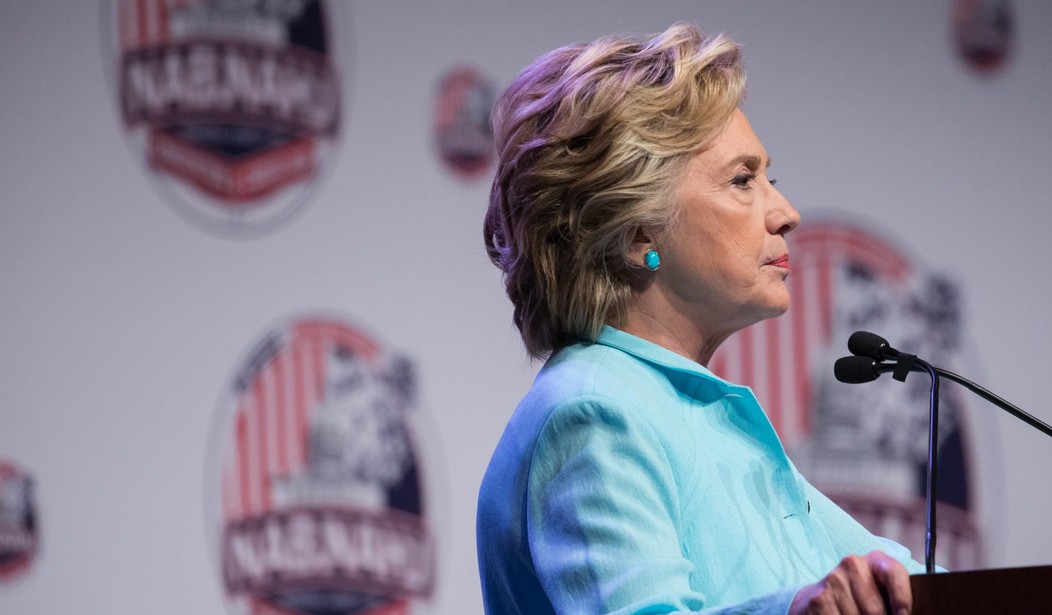On Tuesday night’s show, Fox News host Bill O’Reilly ripped into the Left’s attacks on the Electoral College, attacking the idea of abolishing it as “all about race.”
O’Reilly cited editorials in the New York Times and the Los Angeles Times calling for the abolition of the “antiquated” way the United States of America selects its presidents. While some of these arguments may have a point, the Fox News host argued that the “hidden reason” the Left wants to abolish the Electoral College has nothing to do with progress.
Noting that California provided all of Hillary Clinton’s popular vote margin of victory (she beat Trump by 4.3 million votes there, and won the popular vote by 2.8 million votes overall), O’Reilly argued that “if the Electoral College were abolished, presidential candidates could simply campaign in the nation’s largest states and cities: New York, L.A., Chicago, Houston — and rack up enough votes to win just about any election.”
O’Reilly has an excellent point here, and he need not have brought up the race issue to deal with it. Large population centers generally skew more liberal, so it stands to reason that liberals would prefer a popular vote strategy.
But the Fox News host could not restrain himself. He explained that the Left wants this “because in the large urban areas and blue states like New York and California, minorities are substantial.”
O’Reilly argued that the newspapers calling for the Electoral College abolition “well know that neutralizing the largely white rural areas in the Midwest and South will assure liberal politicians get power and keep it.”
The minority strategy isn’t just political — it’s ideological, the Fox host argued. “The Left views white privilege in America as an oppressive force that must be done away with,” he declared. “Therefore, white working class voters must be marginalized, and what better way to do that than center the voting power in the cities.”
He argued that “the heart of liberalism is race” and that “it permeates almost every issue: that white men have set up a system of oppression and that system must be destroyed.”
O’Reilly summed up the argument in starkly racial terms: “Left wants power taken away from the white establishment, they want a profound change in the way America is run. Taking voting power away from the white precincts is the quickest way to do that.” (emphasis added.)
Watch the video here:
The Fox host makes good points, but ultimately he is allowing the conservative side to fall into the same racial identity politics peddled by the Left. Conservative principles are about uplifting all people, regardless of race. But with the rise of the alt-right and some of the racist elements of Donald Trump’s coalition, some have begun associating Republicans and conservatism with white identity politics.
This is a serious problem when it comes to issues like the Electoral College, because many liberals have started to argue that the system of electing the president was set in place to help the slave states.
4. Yes, it is ironic that this racist idea, the Electoral College, 225 years later ended up benefiting the candidate who spewed racism hate.
— Michael Moore (@MMFlint) December 20, 2016
While Michael Moore does not speak for a majority of liberals, others have indeed claimed the Electoral College was created to help slavery. Akhil Reed Amar, a constitutional law professor at Yale University, argued in Time magazine that “the real demon dooming direct national election in 1787 and 1803” was “slavery.”
To a very limited extent, this is correct. The slave states did benefit from the three-fifths compromise, which granted them limited representation for slaves who could not vote, and the Electoral College is based on Congress, so there is a connection.
But the three-fifths compromise was a compromise. For purposes of population, southern states wanted slaves to count the same as free people, which would have given them a substantial advantage over other states. While it sounds inhumane to count a slave as “three-fifths of a person,” this actually prevented the slave states from establishing a permanent majority.
In fact, when Abraham Lincoln won the presidential election of 1860, the South had lost its electoral power. While Lincoln had opposed the expansion of slavery into the territories, he was not an abolitionist. His election caused the secession not just because of slavery, but also because it signified the loss of electoral power.
The Electoral College was actually formed in order to protect the country from direct democracy. The Founding Fathers reasoned that the states would select the best people to decide on the presidency. Ironically, Democrats are right when they say the Electoral College was made to protect America from a bad president — but if that’s the argument, it does not matter that Clinton won the popular vote.
States still have a say over how their electors vote, but there is a good argument that electors should be able to support whomever they want. But that would actually make the general election less valuable.
The current system, where Republicans and Democrats in the states select electors and charge them with voting for the candidate at the top of the ticket, and proportioning electors based on the popular vote in each state, is itself a compromise between the founders’ original idea and a more direct democracy.
The Electoral College does not have anything to do with race, unless the parties make it so. While the balance of power between slave and free states may have contributed to the current congressional system (where states get a certain number of representatives in the House of Representatives apportioned by population and two U.S. senators just by being a state), that system also balances power between large and small states.
The United States is called the “united states” for a reason. This system preserves some influence for small states, so they are not overwhelmed by large states. Americans elect governors and presidents differently for a reason — each governor represents his or her specific state, while the president (and Congress) represents both the will of the overall people and the will of specific states.
The real reason for keeping or discarding the Electoral College isn’t racial — it’s constitutional. Is America to be a united country of multiple states or will it become a direct democracy representing an undifferentiated mass of people?
Some might argue that the Civil War fundamentally altered the country — before it, the “United States” was used as a plural word, “The United States are…”, while after it the name was singular, “The United States is.” Even so, states retained some degree of sovereignty.
With the constant growth and concentration of power in the presidency and the ever-expanding executive branch of agencies (like the FDA, IRS, EPA, et cetera), the American government has slowly weakened the power of individual states and the smaller groups of people represented in them. Abolishing the Electoral College would merely be a more drastic move in this direction.
Supporting the Electoral College against liberal attacks is less about race and more about limiting the concentration of federal power. As Congress gives up more of its power, the election of the presidency is one of the few things that preserves the influence of individual states.
Race is (lamentably) a political issue, but it is not the fundamental one behind the debate over the Electoral College — the limits of federal power is. Conservatives should not support the current system because Trump won using it, but because it is itself a good — though flawed — system.









Join the conversation as a VIP Member